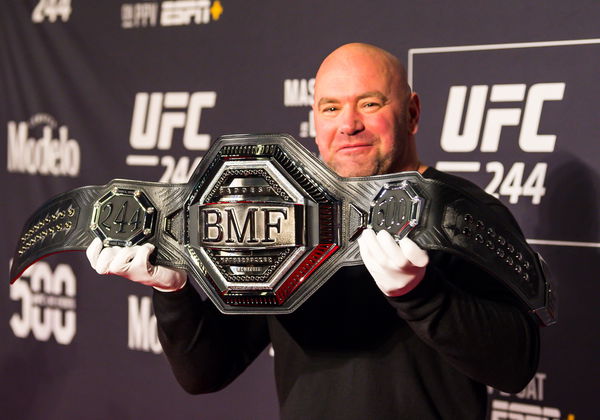

Boxing and MMA have long operated under very different pay structures, with boxing offering significantly higher purses. Consequently, many MMA fighters, after finishing their careers, turn to boxing to cash in on those bigger paydays. Even Conor McGregor famously joked about “red penty nights” during his bout with Floyd Mayweather, highlighting the stark financial gap. Much of this disparity stems from the Muhammad Ali Act, a landmark reform introduced two decades ago. Co-sponsored by Senator John McCain, the Ali Act of 2000 aimed to “protect the fighters,” and since then, it has shielded boxers from exploitation and unfair practices.
Watch What’s Trending Now!
Over the years, the Ali Act has sparked an ongoing debate among fans, critics, and fighters. Now, Dana White and TKO Sports are lobbying to amend the legislation as they prepare to launch their own boxing league next year, under a multi-year agreement with Saudi promoter Turki Al-Sheikh. Since boxing already commands the highest payrolls in combat sports, White reportedly wants to replicate that model for his league, giving promoters more control over rankings and titles through the proposed ‘Ali Revival Act.”
Legendary 93-year-old promoter takes aim at Dana White’s vision
Even as one of the sport’s most powerful promoters, Dana White’s fighter pay policies have sparked controversy. Jake Paul even called him a “capitalist.” Now, as the UFC CEO prepares to launch his own boxing league, he’s reportedly planning to pay fighters less than traditional boxing purses. Tensions boiled over last week during the Canelo vs. Crawford press conference, when reporter Sean Zittel pressed White on the Ali Act and his plans to amend it. White didn’t hesitate—he brushed off the questions and called Zittel an “a–hole,” cementing the heated debate over fighter pay.
Dana White’s push has unsurprisingly drawn sharp criticism from boxing legend and Top Rank founder, 93-year-old Bob Arum. Speaking on Fight Hub TV, Arum said: “I think that’s exactly what he’s trying to do. The Ali Act has worked very, very well, and what it’s done is raise boxing purses to an unprecedented high level. Even though I’m on the management side that pays the person along with other promoters, it’s fair. These fighters risk their lives and health every time they step in the ring, and they should be compensated.”

Imago
November 1, 2019 – New York, New York, USA: DANA WHITE and BMF belt during UFC 244 Weigh-in. UFC 244: Weigh-in – ZUMAs277 20191101_sha_s277_524 Copyright: xJasonxSilvax
Furthermore, Arum criticized Dana White’s treatment of UFC fighters, stressing the importance of keeping the Ali Act intact: “Unlike UFC fighters, who fight for pittance, if that happened to boxing, it would be a tragedy. So I believe the Ali Act should stay and should not be amended.” The numbers tell the story. Entry-level UFC fighters earn just $12,000–$20,000 per fight, plus a matching win bonus. Mid-tier competitors bring in $30,000–$80,000, still tied to victories. The real money comes for top-tier stars and champions, who pull in $200,000+—sometimes with Pay-Per-View shares that can run into the millions.
Mike Tyson’s former coach supports White and team in Ali Act dispute
The boxing world is splitting over Dana White and TKO’s push to amend the Muhammad Ali Act, and now, moreover, Mike Tyson’s former trainer, Teddy Atlas, has joined the conversation. The proposed Muhammad Ali American Boxing Revival Act would create Unified Boxing Organizations (UBOs), thereby letting them host events, rank fighters, and award their own championships—essentially a UFC-style setup for boxing. Dana White and his partners at TKO Boxing would gain the most.
However, critics warn this move could strip fighter rights and centralize power, yet it also carries potential benefits. In addition, the bill sets a national minimum of $150 per round for professional fighters and guarantees at least $25,000 in injury coverage per bout. Despite this, widespread opposition to altering the Ali Act for organizational gain persists, but Atlas sees promise.
“I wanna see him enhance it,” Atlas said. “I want to see him take it to a better place. I want to see the fighters better protected. I want to see more transparency in the sport, in promotional areas, different areas. I love Dana White. I love what he’s done with the UFC… “I love his no-nonsense approach. When you say rework it [the Ali Act], I don’t know what that means, but I’ll tell you what it means to Teddy… I want to see it get better.”
Does Atlas have a point? Will amending the Muhammad Ali Act of 2000 actually protect fighters, or could it end up favoring promoters instead? Share your thoughts below.
